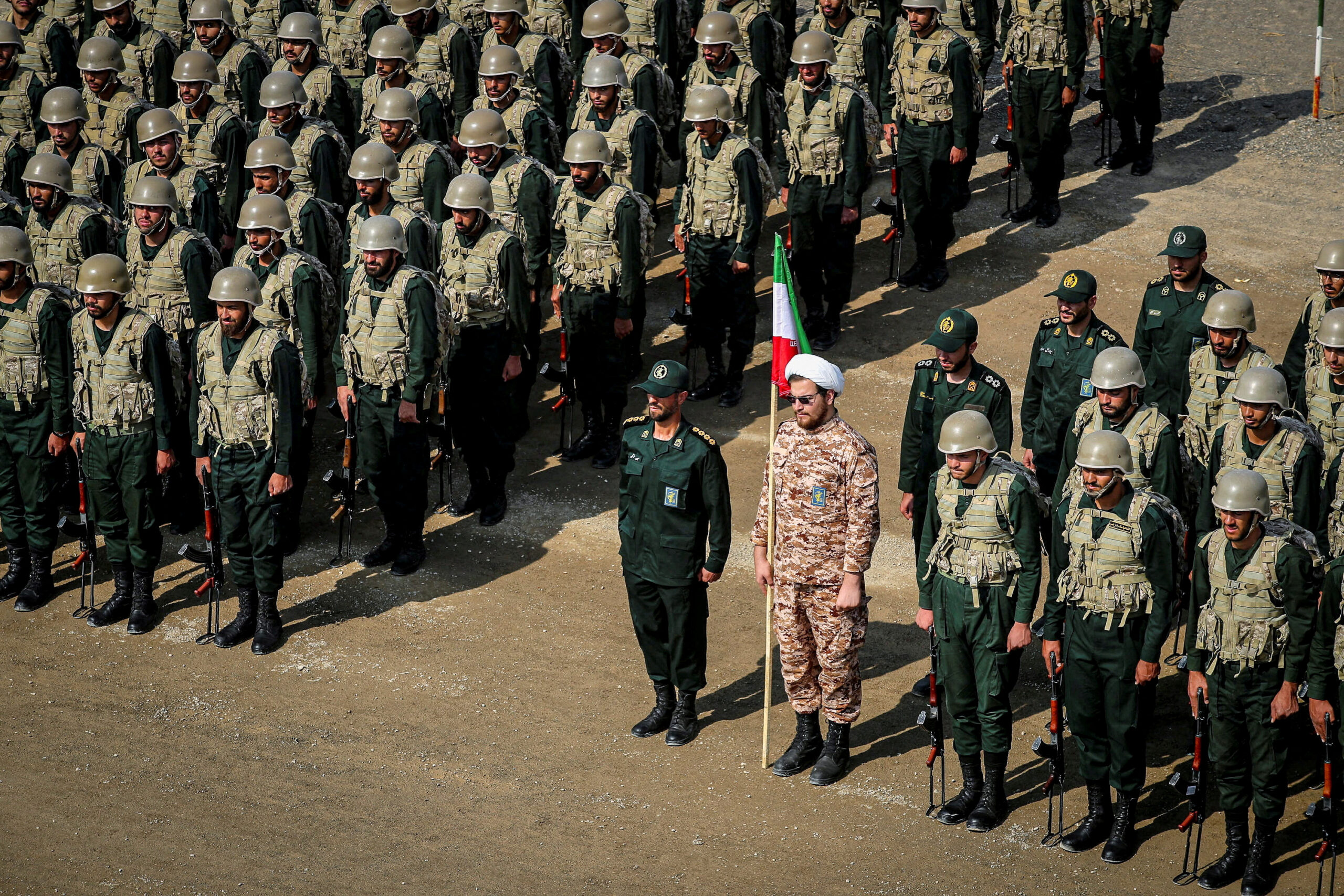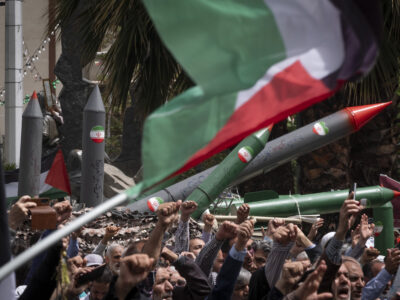How the E.U. Blacklisting Iran’s Revolutionary Guard Could Undermine Protesters
The European Parliament voted on Thursday to put the repressive military force of the Iranian regime — the Iranian Revolutionary Guards Corps (IRGC) — on the European Union’s terrorist list. Though the move is symbolic, the vote is indicative of the mood in the E.U., and may foreshadow binding decisions by E.U. member states in the coming weeks. Such moves might satisfy the justified outrage in Europe over Iran’s support for Russia’s invasion of Ukraine and the IRGC’s killing of Iranian protesters. But there is little reason to believe that it will soften Tehran’s hardline policies — or help Iran’s internal pro-democracy movement. In fact, it could have the opposite effect.
Few elements of the Iranian theocracy are as despised among Iranians as the IRGC. Ayatollah Ruhollah Khomeini established the military unit in April 1979 to safeguard the new revolutionary regime. Khomeini mistrusted the existing Iranian army, which he feared remained loyal to the ousted shah. Since then, the IRGC has “safeguarded” the revolution by killing and imprisoning human rights defenders and pro-democracy activists, as well as by systematically eliminating reformist voices within Iran’s political system. It has often sought Iran’s international isolation because it benefits financially from broad-based economic sanctions — the IRGC controls the smuggling economy in Iran that has emerged in the wake of those sanctions.
To make matters worse, the IRGC also has the Iranian economy in a chokehold. The military organization has operated as a mafia, penetrating every Iranian economic sector and forcing private companies to pay it dividends. Examples of the IRGC benefitting from sanctions abound. Iranian economist Hadi Kahalzadeh points out, for instance, that former president Donald Trump’s “maximum pressure” sanctions caused 13 out of 14 of Iran’s top private road construction companies to file for bankruptcy between 2019 and 2021; meanwhile the main IRGC-affiliated construction company, Khatam-al Anbiya, doubled the number of its road construction projects in that same period.
But it is neither the IRGC’s mafia methods nor its brutal repression of protesters — more than 500 of whom have been killed since September — that explains the full extent of Europe’s desire to adopt a much tougher stance on the IRGC. Rather, it is Iran’s assistance to Russia in its invasion of Ukraine through the sale of Unmanned Aerial Vehicles, i.e., drones, that has driven the shifting mood in Europe.
Read the full piece in MSNBC.


